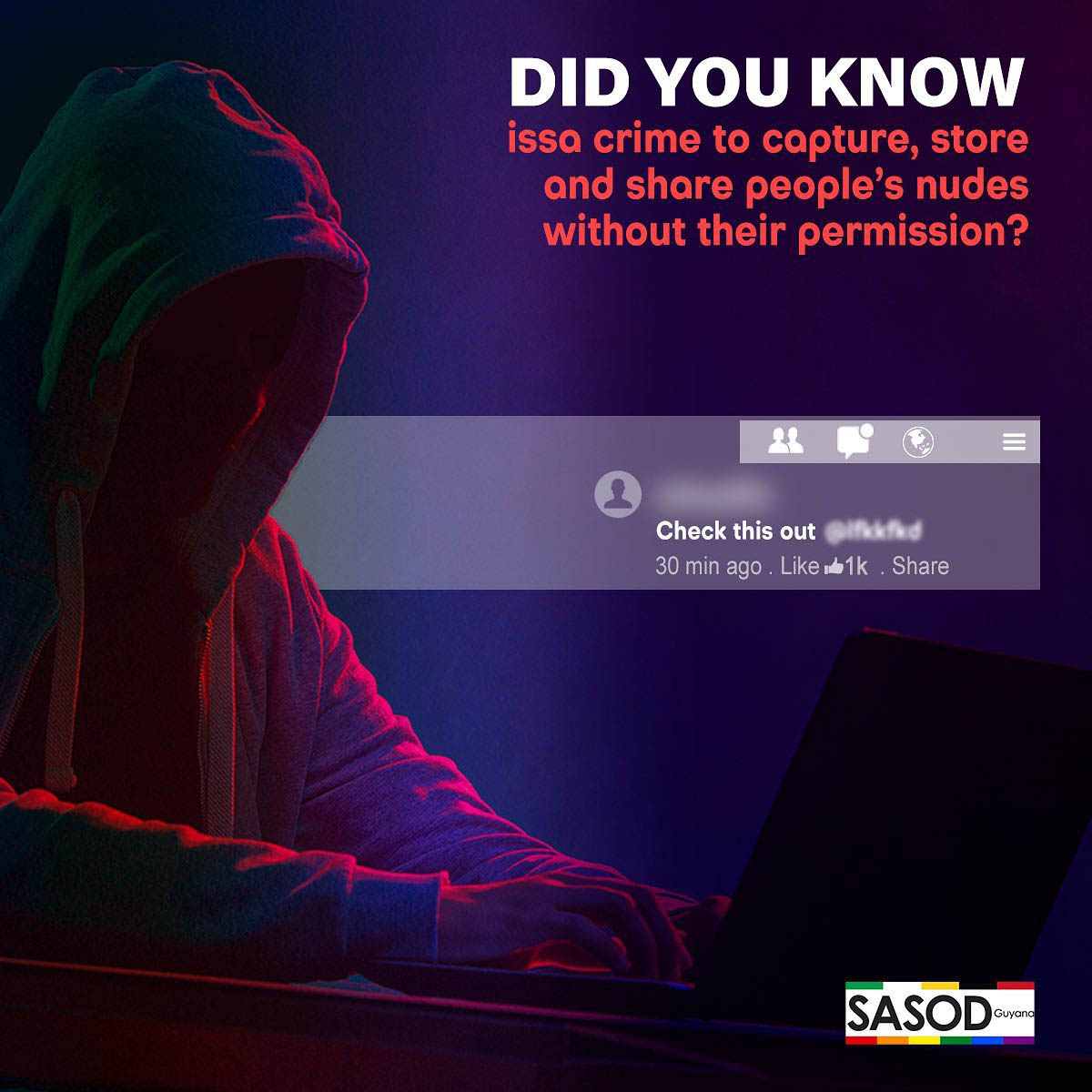The Society Against Sexual Orientation Discrimination (SASOD) has launched a social media campaign to curb cybercrimes against the lesbian, gay, bisexual, transgender, and queer (LGBTQ) community, which it says has been on the rise since the outbreak of COVID-19 in Guyana.
According to SASOD’s Human Rights Coordinator Kobe Smith, the non-governmental organisation, which usually documents cybercrimes against LGBTQ persons in Guyana, has observed an increase in these cybercrimes since Guyana entered a partial lockdown and more persons were forced to stay home. He told Sunday Stabroek that the discovery led to the decision by the organisation to launch an online campaign against cybercrime and cyberbullying.
“We recognised that there is a lot of ignorance when it comes to cybercrimes. In particular, we [had] been documenting issues pertaining to the sharing of nude photographs, without consent, acts of humiliation, vulgar comments about people’s health status and defamation, all targeted against persons within the LGBT community,” Smith said.
He added that the organisation feels as though it has a responsibility to advocate and to foster education and awareness about those issues.
Smith related that SASOD has started by sharing information from Guyana’s Cybercrime Act and specifically sections 16 and 19 of the law. He added that he believes that if persons were more aware of what the law actually says and the penalties attached, they would be deterred from committing the crimes.
Section 16 of the Cybercrime Act, which addresses the “publication or transmission of an image of the private area of a person,” states:
(1) A person commits an offence if the person intentionally captures, stores in, publishes or transmits through a computer system, the image of the private area of another person without that other person’s consent.
(2) A person who commits an offence under subsection (1), is liable –
(a) on summary conviction to a fine of three million dollars and to imprisonment for three years; and
(b) on conviction on indictment to a fine of eight million dollars and to imprisonment for five years.
The section notes that “private area” means naked genitals, buttocks or the breasts of a female person.
Smith said that while the organisation documents the crimes, it also refers persons to the police and offers legal assistance. “So even though we’re documenting and referring persons to legal services, we still feel that we needed a more broad-based approach and a more structured strategic campaign that targets the general population,” he said.
Smith noted that for victims of cybercrimes and cyberbullying, there is a need for psychosocial support, which is an area where the organisation also provides assistance.
Since the beginning of the campaign, Smith noted, the response from the general public has been good and many persons are now aware of the behaviours that constitute crimes and the harsh penalties they attract. He added that even persons that knew that these issues were crimes were not aware of the specific offences or the penalties.
With the positive response, Smith said that SASOD will remain consistent with the campaign so as to ensure that a wider audience is reached. As a result, he noted that because it is a social media campaign, they are sponsoring and promoting ads so as to reach more persons. Additionally, he noted that in the near future they will host an online talk series on cyberbullying and cybercrimes that will feature attorneys, police officers, activists and even victims of cybercrimes to share their knowledge and experiences.
Smith also urged persons who are desirous of reaching out to SASOD on the campaign or access its services, including pro-bono legal counselling and psychosocial support, to contact the organisation via telephone on 592-623-5155 during working hours from Monday and Friday each week. He assured that everything will be done virtually, in keeping with social and physical distancing guidelines.




